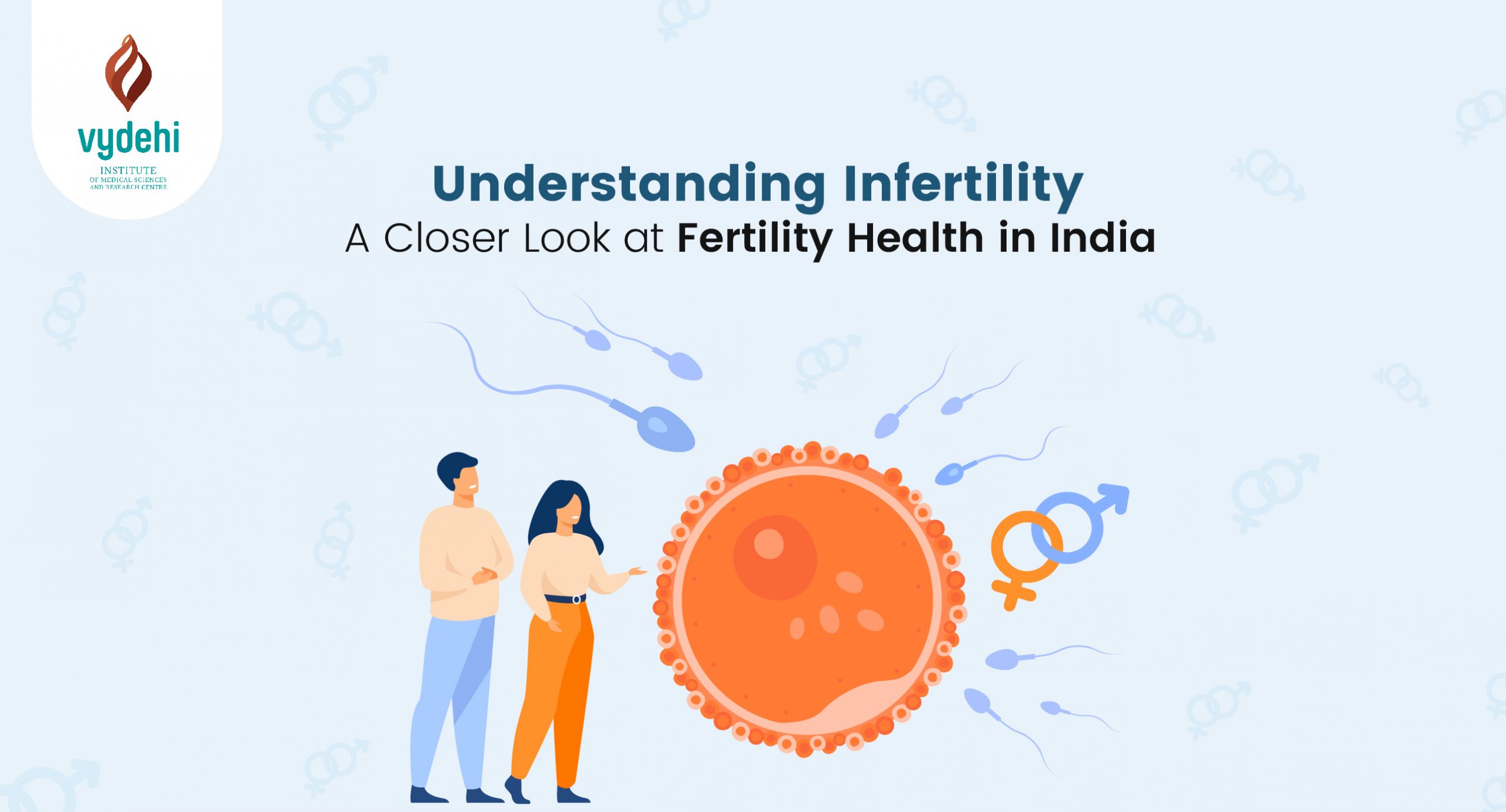

Infertility is a growing concern among Indian couples, especially in urban cities where lifestyle changes, late marriages, and increasing stress levels are becoming the norm. During this time of fertility awareness, it’s important to spark informed conversations around reproductive health, and help people make the right choices — early.
At Vydehi Institute of Medical Sciences and Research Centre, our Fertility & Reproductive Medicine experts provide not just treatment, but also guidance, counseling, and support — from diagnosis to conception and beyond.
In the Indian context, infertility is often surrounded by stigma, despite affecting 1 in every 6 couples. It is medically defined as the inability to conceive after 12 months of regular, unprotected sexual intercourse.
There are two common types:
With more young Indian couples delaying childbirth due to career and financial priorities, understanding fertility health is becoming increasingly important.
Fertility challenges can affect both men and women equally. In India, several region-specific factors also contribute to rising infertility cases.
Family pressure, social expectations, and lack of awareness make male infertility a less discussed but equally important issue in India.
Symptoms of infertility in females and males may go unnoticed for years without active health checkups. Some common signs include:
Routine screenings are often skipped unless couples actively try for pregnancy. If you’ve been trying for a year (or six months if over 35), consider seeking a fertility consultation.
India has seen a sharp rise in the demand for fertility treatments, thanks to growing awareness and advancements in medical science. At Vydehi, we offer evidence-based treatment options including:
Each plan is personalized depending on the couple’s health condition, age, and medical history — with utmost privacy and care.
📍 Learn more about Fertility Treatments at Vydehi
While some causes are genetic or age-related, many infertility risk factors in Indian settings can be addressed:
Cultural myths and delayed consultation can worsen outcomes. Early evaluation ensures better success in managing infertility.
Ans: Yes, and it’s more common than people think. Known as secondary infertility, many Indian couples face difficulty conceiving again due to age, new health conditions, or stress. Tubal infections, weight gain, thyroid issues, or even complications from the first delivery may contribute. At Vydehi, we encourage postnatal couples facing delays in conceiving again to seek early fertility evaluation.
Ans: In India, where lifestyle habits and environmental pollution are major concerns, prevention requires proactive care. Regular health screenings, a balanced vegetarian or mixed diet, yoga or daily walks, avoiding plastic-packed food, and timely marriage/child planning are helpful. Also, minimizing junk food and adopting Ayurvedic wellness practices like panchakarma (after consulting doctors) may support reproductive wellness.
Ans: Fertility awareness empowers Indian couples to make informed choices. Understanding your ovulation cycle, identifying fertility symptoms early, and accessing proper care helps in avoiding delays and frustration. For many, this knowledge also helps in reducing the emotional burden caused by societal expectations and stigma around childlessness.
Ans: Infertility can be emotionally overwhelming in Indian families where parenthood is deeply valued. Couples often face societal pressure, unsolicited advice, or even isolation. Mental health support is crucial. Talk openly with your partner, seek counseling, join a support group, or meditate regularly. At Vydehi, we offer fertility counseling to help couples handle the emotional aspects of their journey.
Infertility is a medical condition — not a personal shortcoming. With timely intervention and the right medical support, most Indian couples can successfully overcome fertility challenges. The first step is awareness. The next is care.
If you’re trying to conceive or concerned about your reproductive health, connect with our fertility experts today.

 Emergency Number
Emergency Number